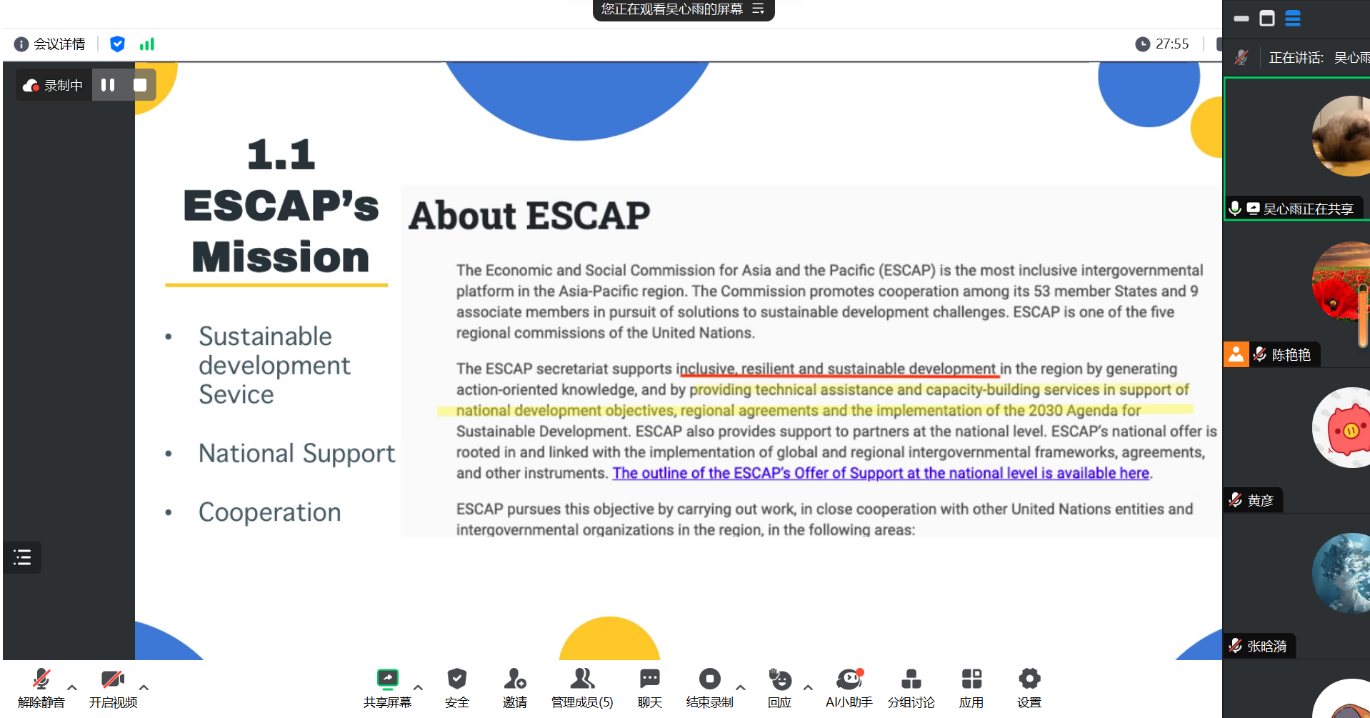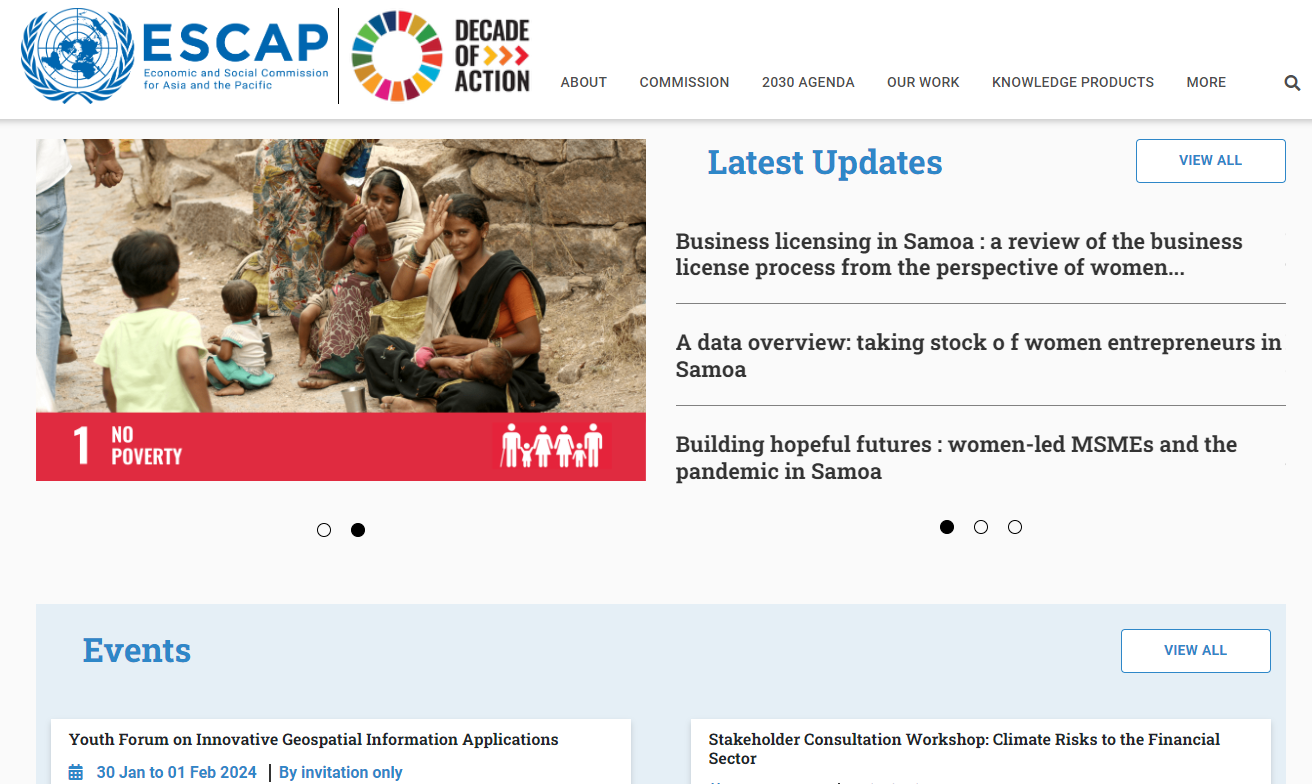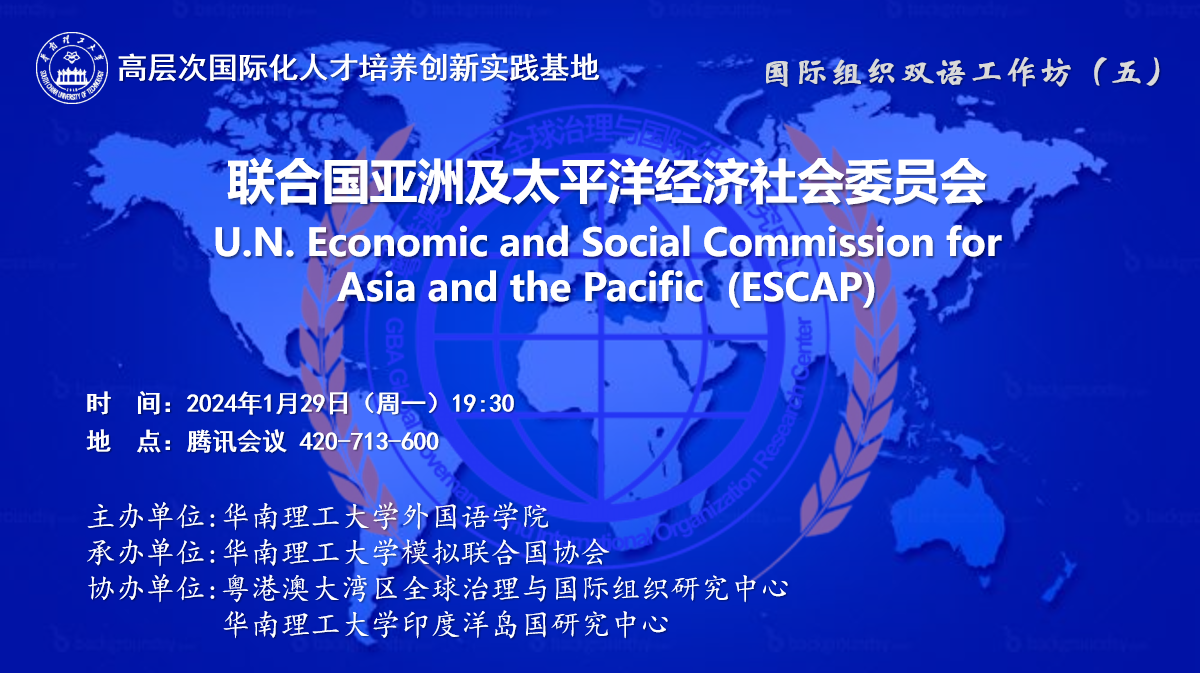为锻就我校青年学子参与全球治理的能力、助力学校“在地国际化”与“双向国际化”行动,国际组织双语工作坊第5期于1月29日以线上的方式举行。学院“国际组织与全球治理”微专业学员、学校国际组织青年人才储备人员等参加活动。本次工作坊聚焦的国际组织是联合国亚洲及太平洋经济社会委员会(Economic and Social Commission for Asia and the Pacific, ESCAP)。
本次工作坊突出区域性国际组织的工作实况,详细解析ESCAP面向高校青年学子的国际组织岗位特征以及我校学生的能力优势,强调对联合国可持续发展目标(Sustainable Development Goals, SDGs)的认可度、参与度、贡献度。

联合国亚洲及太平洋经济社会委员会主题介绍
国际组织双语工作坊由华南理工大学外国语学院主办,华南理工大学模拟联合国协会承办,粤港澳大湾区全球治理与国际组织研究中心、华南理工大学印度洋岛国研究中心协办,该活动也是教育部高层次国际化人才培养创新实践基地的品牌活动之一。工作坊以习近平外交思想为指导,致力于以教育服务外交、服务人类命运共同体建设,为推动全球治理改革发出“中国声音”,贡献青年力量。
附:Introduction of Economic and Social Commission for Asia and the Pacific (ESCAP)

Official Website of ESCAP
The United Nations Economic and Social Commission for Asia and the Pacific (ESCAP) is the regional development arm of the United Nations for the Asia-Pacific region. Made up of 53 Member States and 9 Associate Members, with a geographical scope that stretches from Turkey in the west to the Pacific island nation of Kiribati in the east, and from the Russian Federation in the north to New Zealand in the south, the region is home to 4.1 billion people, or two thirds of the world’s population. This makes ESCAP the most comprehensive of the United Nations five regional commissions, and the largest United Nations body serving the Asia-Pacific region with over 600 staff.
Established in 1947 with its headquarters in Bangkok, Thailand, ESCAP works to overcome some of the region’s greatest challenges by providing results-oriented projects, technical assistance, and capacity building to member States in the following areas:
Macroeconomic Policy, Poverty Reduction and Financing for Development
Trade, Investment and Innovation
Transport
Environment and Development
Information and Communications Technology and Disaster Risk Reduction
Social Development
Statistics
Subregional activities for development
Energy
ESCAP promotes rigorous analysis and peer learning in our core areas of work; translates these findings into policy dialogues and recommendations; and provides good development practices, knowledge sharing and technical assistance to member States in the implementation of these recommendations.
ESCAP’s norm setting and policy work ultimately impacts people’s lives in a positive way by helping countries shape and implement a more balanced and inclusive development agenda for the region.
(图文/李彦泽 张晗漪 吴心雨)



